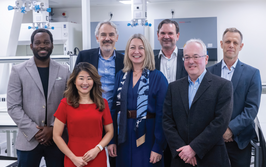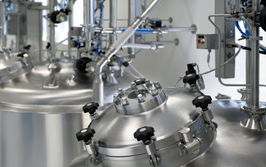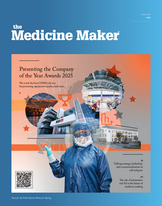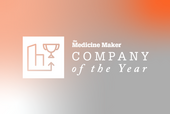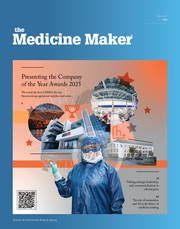Entering the Industrial iPSC Era
As we take the next steps in induced pluripotent stem cell technology, we are faced with enormous challenges
Behnam Ahmadian Baghbaderani | | Opinion

Shinya Yamanaka’s groundbreaking invention of reprogramming human somatic cells into induced pluripotent stem cells (iPSC) has not only impacted the field of drug discovery, toxicity testing and in-a-dish disease modeling, but also profoundly revolutionized the field of cell and gene therapy. The capacity of iPSCs to expand in vitro andthen differentiate into specialized cells (which is to say, directed differentiation into any cell type in the body) as per user needs makes iPSCs a promising and unlimited cell source for curative clinical cell replacement therapies and disease modeling. The advance has led to a growing demand for high quality tissue and pluripotent stem cell-based therapeutics.
Over the last decade, several clinical trials using iPSC-derived specialized cells have been planned, including: mesenchymal stem cells for the treatment of steroid-resistant acute graft versus host disease/GvHD; dopaminergic progenitors for the treatment of Parkinson’s disease; natural killercell-based cancer immunotherapy for the treatment of advanced solid tumors; retinal pigment epithelial cells for the treatment of age-related macular degeneration (AMD); insulin secreting beta cells for the treatment of type I diabetes; and human iPSC-based cancer immunotherapy.
Despite the advances in the iPSC field, major challenges remain in terms of industrializing iPSC-based therapies – specifically, relating to reprogramming and directed differentiation. Reprogramming somatic cells into iPSCs to generate a master cell bank (MCB) is a highly manual and open process, requiring specialized skills and, therefore, continuous training. The expansion process from a vial of banked iPSCs to generate large numbers of iPSCs has been the focus of recent work, leading to closed automated processing that can support industrialization (1, 2). Following expansion, directed differentiation of cells to the target cell type remains highly variable, however. A prime reason for this is that directed differentiation requires very careful optimization of the differentiation factors, their concentrations, and timing of their addition – all of which vary depending on the target cell type and the protocol used by different investigators (3). Current processes for directed differentiation for the generation of iPSC-derived cell therapy products are also not robust and reproducible, and tend to rely on highly manual, open manipulation steps. Moreover, some of the critical materials used in the process may lack qualified or reliable manufacturers/vendors – and some are only available as research-use only reagents.
To develop a robust, reproducible, and commercially viable cGMP-compliant iPSC-related manufacturing process, it is important to incorporate a wide range of strategies in the early clinical development phase. Some of these strategies include careful selection of the starting somatic cells, reprogramming method, cell culture system, and the development of 3D bioreactor protocols for expansion and differentiation of iPSCs. Importantly, it is necessary to implement appropriate in-process controls and characterization methods at the appropriate steps of the manufacturing process to evaluate the critical quality attributes of the intermediates, drug substance, and the final products, as well as monitor the status of the cells over the course of the manufacturing process.
In my view, we should address the challenges of iPSC industrialization by focusing on clinically-compliant processes, including:
· appropriate documentation and controls on donor screening and tissue sourcing
· development of a reliable cell culture system that not only supports generation and expansion of cGMP compliant iPSCs but also avoids biased directed differentiation (4)
· incorporation of commercially viable technologies in the manufacturing process (for example, automated computer-controlled 3D bioreactor-based processes) (2).
· development of comprehensive characterization and testing methods to evaluate the quality and stability of iPSCs (4,5,6,7).
Though iPSCs hold the potential to be used in both allogeneic and autologous applications, the development of allogeneic therapies using iPSC-derived products has outpaced the development of autologous therapies. For instance, allogeneic therapies based on iPSC-derived specialized cells from healthy donors to address diabetes, Parkinson’s disease, and AMD are quickly moving into early phase clinical trials. And that’s despite the fact that autologous iPSC-derived retinal pigment epithelial cells were used in 2014 for the first time in a clinical trial designed to treat an AMD patient in Japan. Autologous iPSC-based therapies are likely to see high interest because they negate the risk of immune rejection of the implanted cells. However, the time and cost involved in generating an individualized bank of iPSCs and an associated therapeutic product for a particular indication is currently a major barrier – one that can only be addressed via complete automation of the entire process.
In addition to the cell restorative therapies developed from iPSC-derived specialized cells, a growing area of interest is iPSC-derived extracellular vesicles (EVs). EVs are tiny lipid membrane enclosed particles that carry biologically active molecules and genetic materials from parent cells (Garikipati and Kishore). These EVs contain a cell-free population of stem cell-specific RNAs and proteins secreted by iPSCs – and could mediate a therapeutic effect without the potential risks associated with cell implantation. Significant work still needs to be done to understand the mechanism of action and potential applications of this new modality.
Human iPSC technology has received tremendous attention, but we must overcome the challenges relating to robustness of manufacturing, product quality, safety, and cost. We can tackle these challenges by focusing on GMP design early on during the process and analytical method development stage – and by ensuring we use high-quality starting materials and innovative technologies.
- PR Pandey et al., “End-to-End Platform for Human Pluripotent Stem Cell Manufacturing,” Int J Mol Sci., 21 (2019).
- M Shafa et al., “Computational fluid dynamics modeling, a novel, and effective approach for developing scalable cell therapy manufacturing processes,” Biotechnol Bioeng., 116, 3228-3241 (2019).
- LA Williams, BN Davis-Dusenbery, KC Eggan, “SnapShot: directed differentiation of pluripotent stem cells,” Cell, 149, 1174-1174.e1 (2012).
- M Shafa et al., “Human Induced Pluripotent Stem Cells Manufactured using a cGMP Compliant Process Differentiate into Clinically Relevant Cells from Three Germ-Layers,” Frontiers in Medicine, 15 (2018).
- Baghbaderani BA, Tian X, Neo BH, Burkall A, Dimezzo T, et al. (2015) cGMP-Manufactured Human Induced Pluripotent Stem Cells Are Available for Pre-clinical and Clinical Applications. Stem Cell Reports 5: 647-659.
- Baghbaderani BA, Syama A, Sivapatham R, Pei Y, Mukherjee O, et al. (2016) Detailed Characterization of Human Induced Pluripotent Stem Cells Manufactured for Therapeutic Applications. Stem Cell Rev 12: 394-420.
- M Shafa et al., “Long-Term Stability and Differentiation Potential of Cryopreserved cGMP-Compliant Human Induced Pluripotent Stem Cells,” Int J Mol Sci., 23 (2019).
Behnam Ahmadian Baghbaderani is Global Head of Process Development, Lonza Cell and Gene Therapy.


